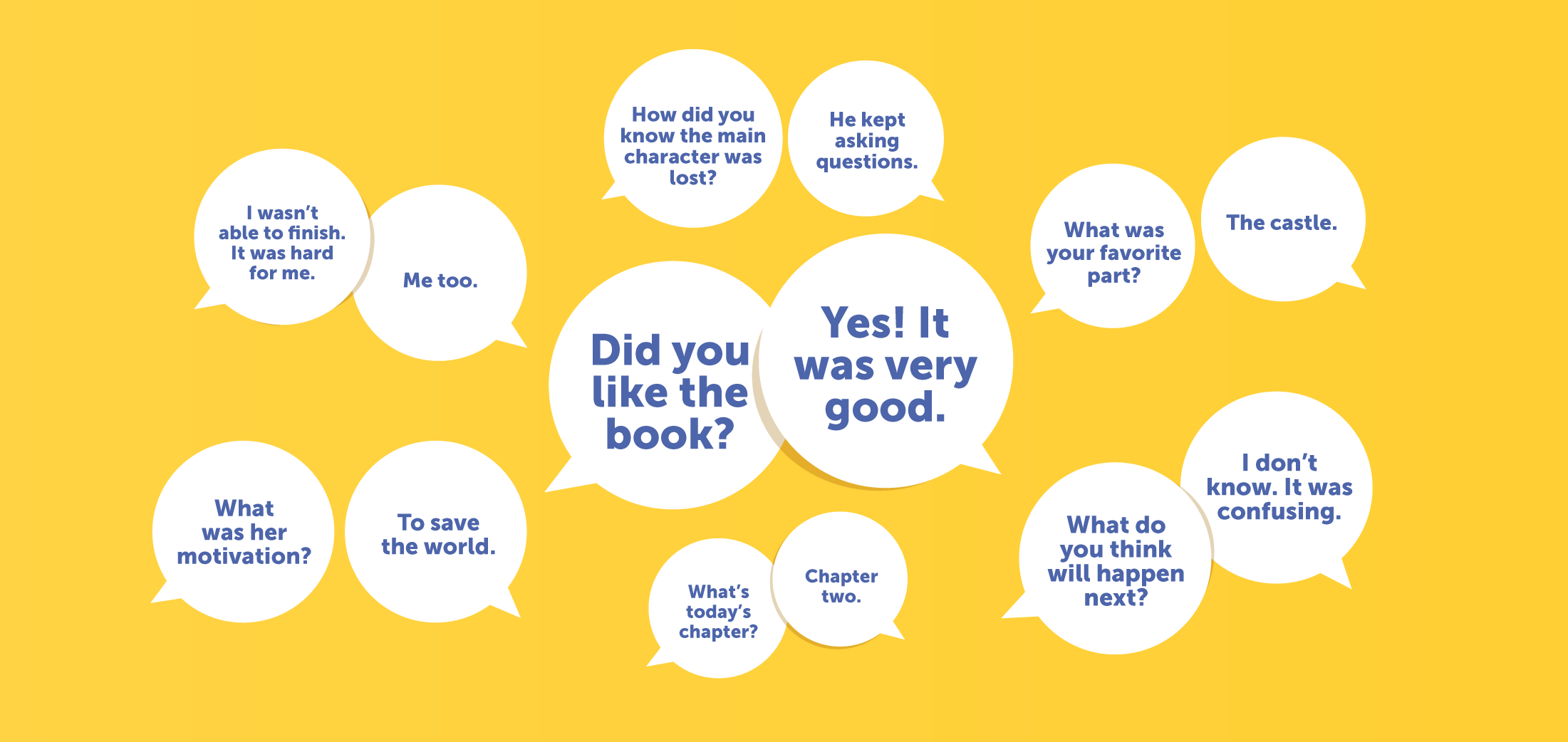
By Pamela A. Mason
But oral language is still important to the development of reading and writing skills, especially vocabulary development. I would encourage all teachers — not just ELA teachers, because literacy is an integral part of all instruction — to engage students in discussions. Students should discuss what they read with each other, and teachers should set expectations and routines for productive discussions. I believe that teachers are hesitant to include discussions for several reasons. Doing it well requires establishing routines and using prompts to keep the discussions productive and respectful. It assumes that teachers have facilitation skills. And the ability to discuss is not a “tested skill.” However, there is both research and practice evidence showing that discussions result in measurable outcomes in literacy achievement.
Before beginning a rich text-based discussion, teachers should activate their students’ background knowledge about the setting and the problem(s) confronting the characters. They can ask questions such as “Have you ever felt like you were afraid to do something new?” and “Have you ever traveled to a new place? How did it compare to where you lived or what you thought it would be like?” These types of questions can help students think about what they already know about the topic, activating prior knowledge.
During reading, teachers should check for understanding. They can ask questions that encourage students to revisit their thoughts from before they read and that ask students to predict outcomes based on what they have read so far. Students should refer to the text to ground their responses.
After reading, teachers should not only revisit the opening questions, but they should engage students in discussing their favorite parts of a narrative text or the information that they learned or confirmed in an informational text. Teachers should foster student-to-student discussions, rather than “spoke and wheel,” teacher-to-student conversations.
Facilitating productive discussions requires teachers to set clear expectations, model what a good discussion looks like, give students sentence starters for engaging (this is especially important for English language learners), and establish routines, so that effective discussions can occur among students even when the teacher is not present.
This answer was developed in partnership with Usable Knowledge at the Harvard Graduate School of Education.

But oral language is still important to the development of reading and writing skills, especially vocabulary development. I would encourage all teachers — not just ELA teachers, because literacy is an integral part of all instruction — to engage students in discussions. Students should discuss what they read with each other, and teachers should set expectations and routines for productive discussions. I believe that teachers are hesitant to include discussions for several reasons. Doing it well requires establishing routines and using prompts to keep the discussions productive and respectful. It assumes that teachers have facilitation skills. And the ability to discuss is not a “tested skill.” However, there is both research and practice evidence showing that discussions result in measurable outcomes in literacy achievement.
Before beginning a rich text-based discussion, teachers should activate their students’ background knowledge about the setting and the problem(s) confronting the characters. They can ask questions such as “Have you ever felt like you were afraid to do something new?” and “Have you ever traveled to a new place? How did it compare to where you lived or what you thought it would be like?” These types of questions can help students think about what they already know about the topic, activating prior knowledge.
During reading, teachers should check for understanding. They can ask questions that encourage students to revisit their thoughts from before they read and that ask students to predict outcomes based on what they have read so far. Students should refer to the text to ground their responses.
After reading, teachers should not only revisit the opening questions, but they should engage students in discussing their favorite parts of a narrative text or the information that they learned or confirmed in an informational text. Teachers should foster student-to-student discussions, rather than “spoke and wheel,” teacher-to-student conversations.
Facilitating productive discussions requires teachers to set clear expectations, model what a good discussion looks like, give students sentence starters for engaging (this is especially important for English language learners), and establish routines, so that effective discussions can occur among students even when the teacher is not present.
This answer was developed in partnership with Usable Knowledge at the Harvard Graduate School of Education.